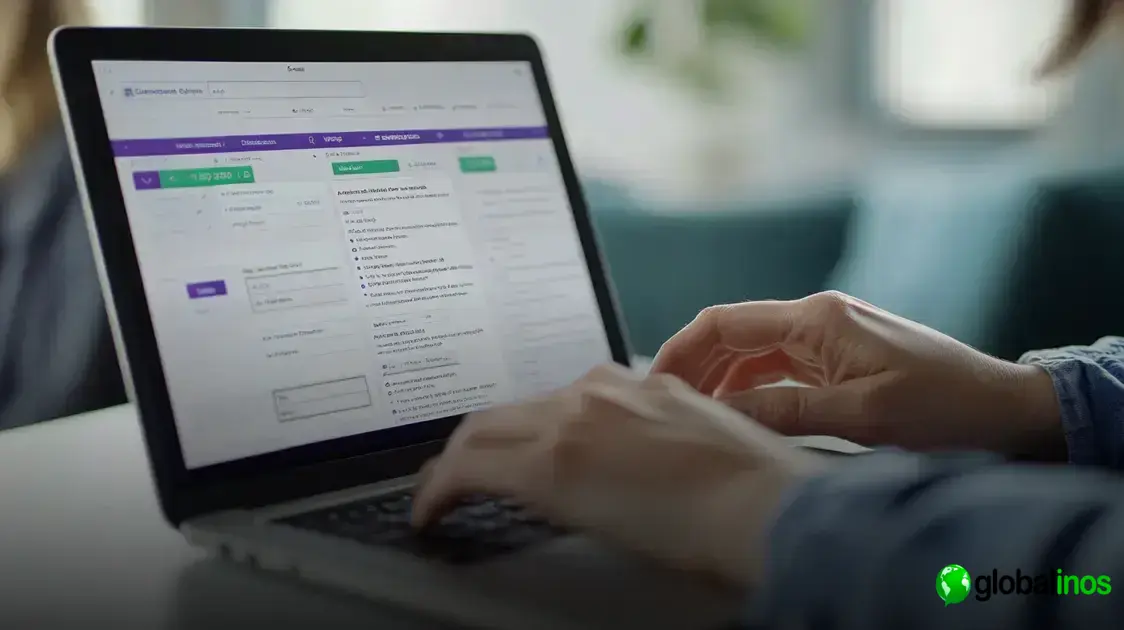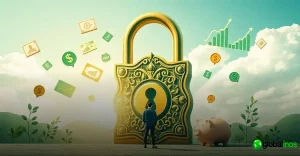Emergency Cash Loans can provide the quick relief you need during financial trouble. Whether you’re dealing with unexpected medical bills or urgent repairs, having access to fast funds can make a significant difference. These loans are designed to help you navigate emergencies without unnecessary delays.
Understanding how Emergency Cash Loans work is essential for making informed decisions. They offer a convenient solution, but knowing the terms, interest rates, and repayment options ensures you use them wisely. Managing these loans effectively can prevent financial strain while covering urgent expenses.
Exploring the benefits and best practices of Emergency Cash Loans can help you maximize their advantages. From quick approval to flexible terms, they provide crucial support when needed. Keep reading to discover expert tips on securing these loans and making the most of their benefits.
Understanding Emergency Cash Loans
Emergency cash loans provide quick financial relief for urgent expenses like medical bills or car repairs. These short-term loans offer fast approval, with funds often available within a day. Their easy application process makes them a convenient option in emergencies.
Understanding repayment terms is essential to avoid financial strain. Loan durations vary, and high-interest rates can increase costs. Borrowing responsibly ensures timely repayment, preventing extra fees or credit score damage.
When used wisely, emergency cash loans can be helpful but should not be a long-term solution. Comparing interest rates and repayment plans helps in making informed decisions. Keep reading for expert tips on securing the best options.
How to Apply for Emergency Cash Loans
Applying for emergency cash loans is a straightforward process. Here are the steps you should follow to make it easier:
1. Assess Your Needs
Before applying, determine how much money you need and how soon you need it. Having a clear idea of your financial requirements will help you choose the right loan.
2. Research Lenders
Look for reputable lenders that offer emergency cash loans. You can check online reviews, compare interest rates, and examine their terms and conditions. Make sure the lender is licensed and follows state regulations.
3. Gather Required Documents
You will typically need to provide some documentation when applying for a loan. Common documents include:
- Identification (e.g., driver’s license or passport)
- Proof of income (e.g., pay stubs or bank statements)
- Social security number
4. Fill Out Application
Most lenders offer online applications. Fill out the form carefully, providing accurate information. Double-check for any mistakes that could delay the process.
5. Submit Your Application
Once you’re satisfied with the application, submit it according to the lender’s instructions. Some lenders provide instant approvals, while others may take longer.
6. Review Loan Offer
If approved, you will receive a loan offer. Review the terms, including the interest rate, repayment schedule, and any additional fees. Make sure you understand your obligations before accepting the loan.
7. Accept the Loan
If the terms are acceptable, sign the loan agreement to finalize the process. Keep a copy of the agreement for your records.
8. Receive Funds
After acceptance, the lender will usually deposit the funds into your bank account. This can happen as quickly as the same day or within a few business days, depending on the lender.
Benefits of Emergency Cash Loans

Emergency cash loans offer a variety of benefits for individuals facing sudden financial challenges. Here are some of the main advantages:
Quick Access to Funds
One of the most significant benefits is the quick access to cash. Unlike traditional loans, which can take days or even weeks to process, emergency cash loans can be approved and funded within a few hours or even the same day.
No Collateral Required
Many emergency cash loans are unsecured, meaning you don’t have to put up your house, car, or other valuables as collateral. This reduces the risk for borrowers who may not have assets to secure a loan.
Flexible Use of Funds
Emergency cash loans can be used for various purposes. Whether you need to cover medical expenses, car repairs, or unexpected bills, lenders typically allow you to use the funds as you see fit.
Easy Application Process
The application process for these loans is usually simple and straightforward. Most lenders offer online applications that require minimal documentation. This ease of use is particularly beneficial in urgent situations when time is of the essence.
Improve Your Credit Score
Responsible borrowing can help improve your credit score. Making on-time payments can reflect positively on your credit report and demonstrate to future lenders that you are a reliable borrower.
Helps Avoid Financial Crisis
Emergency cash loans can prevent a minor financial setback from turning into a significant crisis. By providing immediate funds, these loans can help manage unexpected expenses before they escalate.
Accessible to Many Borrowers
These loans may be available to a broader range of borrowers, including those with less-than-perfect credit. This accessibility can provide relief for individuals who may not qualify for traditional financing options.
Convenient Repayment Options
Many lenders offer flexible repayment terms that can be tailored to fit your financial situation. You can often choose a loan term that works best for you, making it easier to manage your budget.
Tips for Approving Your Emergency Cash Loan
Getting your emergency cash loan approved can be straightforward if you follow a few important tips. Here are some key strategies to increase your chances of approval:
1. Check Your Credit Score
Before applying, check your credit score. Knowing where you stand can help you understand what lenders may see. A higher score improves your chances of approval.
2. Provide Accurate Information
When filling out your application, make sure to provide accurate and complete information. Inaccuracies can lead to delays or denial of your loan request.
3. Demonstrate Steady Income
Showing a steady income is crucial when applying for a loan. Lenders want to see that you can repay the loan on time. Include recent pay stubs or bank statements as proof of income.
4. Keep Your Debt-to-Income Ratio Low
A low debt-to-income ratio makes you a more attractive borrower. Aim to keep your debts manageable compared to your income. This shows that you can handle additional loan payments.
5. Research Potential Lenders
Do your homework on potential lenders. Different lenders have varying requirements and terms. By finding lenders that match your financial profile, you can increase your chances of approval.
6. Apply for a Suitable Loan Amount
Only request the amount you truly need. Asking for a larger sum than necessary can raise red flags for lenders. A smaller, more reasonable amount may increase your chance of approval.
7. Consider a Co-Signer
If you’re worried about your credit or income, consider asking a trusted friend or family member to co-sign the loan. A co-signer with a better financial profile can improve your chances of approval.
8. Be Prepared to Explain Your Needs
Have a clear reason for needing the loan. Whether it is for medical bills, repairs, or other emergencies, being able to explain your situation can help lenders feel more comfortable approving your application.
Interest Rates on Emergency Cash Loans

Interest rates on emergency cash loans can vary widely based on several factors, including the lender, your credit score, and the amount you are borrowing. Understanding these rates is crucial before taking out a loan.
1. Average Interest Rates
Interest rates for emergency cash loans typically range from 5% to 30%. However, some lenders may charge even higher rates based on their policies and your financial history.
2. Factors Influencing Interest Rates
Several factors can affect the interest rate you receive:
- Credit Score: Lenders often use your credit score to determine your risk level. A higher score usually results in lower interest rates.
- Income: A stable income can help secure better rates, as it shows lenders you have the means to repay the loan.
- Loan Amount: The amount you borrow may influence the interest rate. Larger amounts can come with different rates compared to smaller loans.
3. Short-Term vs. Long-Term Loans
Emergency cash loans are mainly short-term, and the interest rates are generally higher compared to long-term loans. However, short terms can mean lower overall costs, as you repay the loan quicker.
4. Fixed vs. Variable Rates
Some loans may offer fixed interest rates, meaning your rate does not change over the term of the loan. Others may have variable rates, which can change based on market conditions. Ensure you know which type you are applying for.
5. Importance of Comparing Rates
It is essential to compare interest rates from multiple lenders. Doing this will help you find the most favorable terms and save you money in repayments.
6. Read the Fine Print
Before agreeing to a loan, read the terms and conditions carefully. Look for any hidden fees or additional costs that could affect the overall interest rate.
Alternatives to Emergency Cash Loans
If an emergency cash loan is not suitable for you, there are several alternatives to consider. Here are some options that might help during financial emergencies:
1. Personal Loans
Personal loans from banks or credit unions can provide larger amounts of money at lower interest rates compared to emergency cash loans. These loans usually require a good credit score and a solid repayment plan.
2. Credit Cards
If you have a credit card, you can consider using it for emergency expenses. Just be careful of high interest rates and try to pay off the balance as soon as possible to avoid debt buildup.
3. Peer-to-Peer Lending
Peer-to-peer lending platforms connect borrowers directly with individuals willing to lend money. This can often result in lower rates and more flexible terms than traditional banks.
4. Payday Alternatives
Some credit unions offer payday alternative loans (PALs), which are perfect for emergencies. They typically have lower interest rates and more manageable repayment terms than regular payday loans.
5. Family and Friends
Consider reaching out to family or friends for a small loan. This can be an interest-free option, but be sure to agree on repayment terms to avoid straining relationships.
6. Local Assistance Programs
Many communities offer assistance programs for people facing financial difficulties. These programs might help with rent, utilities, or other essential expenses during tough times.
7. Side Gigs or Freelancing
If you have skills to offer, consider taking on side gigs or freelancing to earn extra money quickly. Websites like Upwork or Fiverr can help you find short-term jobs that match your skills.
8. Selling Unneeded Items
Look around your home for items you no longer need. Selling furniture, electronics, or clothing online can quickly generate cash to help cover your immediate needs.
When to Consider Emergency Cash Loans
Considering an emergency cash loan can be a smart financial decision in specific circumstances. Here are some situations where it may be beneficial:
1. Unexpected Medical Expenses
Medical emergencies can happen without warning, leading to high bills. If you find yourself facing unexpected medical costs, an emergency cash loan can provide quick relief.
2. Car Repairs
If your car breaks down and needs immediate repairs to get back on the road, a cash loan can help cover these costs, especially if you rely on your vehicle for work or daily activities.
3. Urgent Home Repairs
Have a leaky roof or a broken furnace? Emergency cash loans can help you handle urgent home repairs and avoid further damage, which can lead to more significant expenses down the line.
4. Unexpected Travel Costs
If you need to travel unexpectedly for a family emergency or to take care of urgent matters, these loans can help cover transportation and lodging costs.
5. Bill Payments
Struggling to manage your monthly bills? If you’re facing eviction or utility shutoff, emergency cash loans can provide the necessary funds to keep you afloat, preventing more severe financial consequences.
6. Job Loss or Income Gap
If you’ve recently lost your job or are experiencing a delay in receiving your paycheck, an emergency loan can provide temporary financial support until you regain stability.
7. Avoiding High-Interest Debt
Using an emergency cash loan to pay off high-interest debts can be a way to manage your finances more effectively. These loans often have lower rates than credit cards, helping you save money.
8. When Other Options Are Unavailable
If you have exhausted other options, such as borrowing from friends or family, an emergency cash loan may be the only viable solution to meet your immediate financial needs.
Making Informed Choices About Emergency Cash Loans
Emergency cash loans can be a valuable tool for navigating unexpected financial challenges. Understanding their benefits, the common misconceptions, and when to consider them can empower you to make informed decisions.
By exploring alternatives and following tips for approval, you can better manage your financial situation in times of need. Always consider your repayment abilities and explore all options before committing to a loan.
With the right knowledge and preparation, emergency cash loans can provide quick solutions to help you overcome financial difficulties and regain stability.
Check out our article on Repayment Plans to learn about different options for managing your debt and making your payments more manageable.





